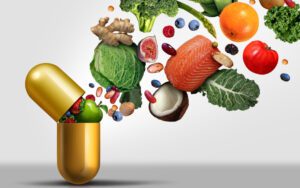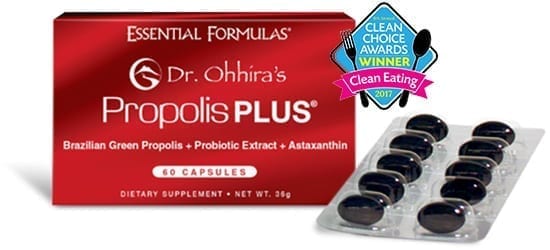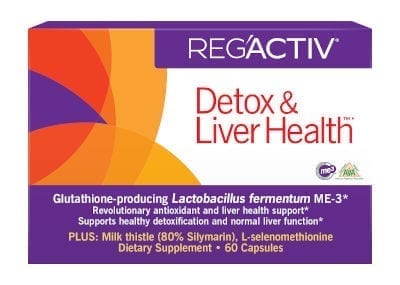Mar 18, 2015
by Abby Jean

We’ve all heard the saying “money doesn’t grow on trees,” and I believe we can agree that dietary supplements don’t either.
Why is it necessary to supplement our diet with tiny capsules that, if routinely taken, deliver us “so-called” nutrients? Do we not receive these nutrients from the foods we eat?
Yes, we obtain adequate nutrients from the foods we eat if we’re eating a diet rich in whole, unprocessed foods that are primarily organic and naturally nutrient-dense. However, we do not get adequate nutrients from a diet that is highly processed or lacking in fresh fruits and vegetables.
While getting nutrition from whole foods is ideal, supplementation can be necessary when nutritional deficiencies arise. This can happen due to a lack of whole foods in the diet, poor nutrient absorption, lifestyle factors that deplete nutrients, or even poor soil quality resulting in mineral-poor crops.
With an overabundance of supplements in the marketplace, from vitamins, minerals and herbals to amino acids, probiotics and enzymes, how do you know if what you’re buying is potent and active enough to support your health?
The New York Times recently published an article that brought to light the truth about low quality supplements. The New York State attorney general’s office tested supplements from four major retailers—Walmart, GNC, Target, and Walgreens—and found that 4 out of 5 supplements tested did not contain the herb advertised on the label.
We were pretty shocked at this finding. We knew that there were low quality supplements out there with additives or non-absorbable forms of a nutrient, but to think that the herbs simply weren’t in these product at all floored us.
Since we know a lot of you are concerned about your health and may use supplements to support it, we thought we’d share some of our knowledge on the matter. So for those who want to avoid deceptive labeling and low quality supplements, I put together a simple guide to help!
Vetting for Quality
There are several factors to consider when choosing a dietary supplement.
What To Look For
- A good multivitamin: For cost efficiency and limiting the consumption of multiple supplements, try finding a basic multivitamin that also includes minerals, bioflavonoids, enzymes, phytonutrients, antioxidants, herbs, essential fatty acids, fiber and greens within one formula.
- Standardized supplements: Search for supplements that are standardized, a process used to ensure batch to batch consistency.
- Reputable manufacturers: To name a few: Gaia Herbs, Herb Pharm, and Mega Food are reputable brands typically found at your local-health food store.
- Medium-priced supplements: These are generally the best value.
- Expiration Dates: Supplement companies are not required to put an expiry date on the label, leaving you, the consumer, wondering how long it’s been sitting around for.
- Genuine Philosophy: Seek out honest, high-integrity companies who have a genuine philosophy for people and their health needs.
Seals of Approval
Supplements that have seals of approval from outside companies have already been vetted to some extent from quality, purity, and potency. Look for seals from:
- Consumerlab.com
- United States Pharmacopeia (USP)
- Natural Products Association (NPA)
(Note: Some companies may have valid reasons for not having these verifications, so additional research on the integrity of a manufacturer is always encouraged.)
What To Avoid
Think twice about buying a supplement if it has these qualities:
- Artificial colors and dyes.
- Fillers such as sugar, starches, corn, wheat, dairy, artificial flavoring, sweeteners, and preservatives.
- Magnesium stearate, a potentially harmful binding agent in vitamins.
- Synthetic forms of vitamin C & E. The body does not absorb these lab-produced forms the same way it does with natural sources. Look for Vitamin E in the form of mixed d-tocopherols and avoid a synthetic form called dl-alpha-tocopheryl, which is made from petrochemicals. Vitamin C is best absorbed from whole food sources or whole-food blended supplements. Here is our team’s favorite Vitamin C!
- Synthetic Vitamin D2: When choosing a Vitamin D supplement, avoid the synthetic D2, which may be less effective.
- Discounted or low cost supplements, as these might lack in potency and may be produced with synthetics and/or fillers to keep the price low.
- Mass produced supplements manufactured by large conglomerates.
Whole-Food Based vs. Pharmaceutical Grade Supplements
When you read “whole food” over “pharmaceutical”, you’re probably already leaning toward the former, naturally. However, there are pros and cons to each grade.
Whole Food Supplements
Pros: Nature created a synergistic blend within whole foods, containing all vitamins, minerals, enzymes and antioxidants. These nutrients work together to deliver potent nutrition to your body. When you consume whole food supplements, you receive far more benefits, so long as they are quality products.
Cons: Whole-food (or food grade) vitamins do not undergo the same regulations for potency and efficacy as pharmaceutical grade. As mentioned in the New York Times article, the FDA targeted name brand supplements that contained dangerous and unlisted ingredients! It’s best to research when choosing a whole food supplement, so hopefully the guide above can help steer you in the right direction.
Pharmaceutical Grade Supplements
Pros: Many integrative MDs and naturopathic doctors prescribe pharmaceutical grade to patients because their quality can sometimes be superior to whole-food vitamins as they offer precise dosages for treating specific conditions, illnesses and diseases.
Cons: Synthetic supplements only offer an isolated (or fractionated) part of the whole. Often times, by taking isolated vitamins, you are getting a “mega dose” of a particular vitamin without the balance of other vitamins, which may cause problems if taken long term. This is why pharmaceutical grade supplements should be used under the guidance of a health practitioner, and are generally taken for a period of time rather than as a daily supplement.
Supplements For Just About Anyone
I love a good success story, especially one involving an affiliate of Annmarie Skin Care, the beloved Kris Carr! If you have not heard about this amazing woman’s battle with a rare and incurable form of cancer that she has lived with for over a decade, I’d highly recommend getting to know her! Plants are her allies, and well, supplements are too!
Of course, with a serious diagnosis of any kind of illness or cancer, it’s 100% advisable to work with an Integrative MD who can carefully “prescribe” pharmaceutical-grade supplements specific for your body’s individual needs. In Kris’s case, she worked with Dr. Kenneth Bock, Integrative MD who helped her regain her health through supplementation (in addition to a plant-based diet). From this remarkable victory, Kris continues to actively inspire readers through her blog. She previously interviewed Dr. Bock about nutritional supplements, who shared a ton of great info. You can watch the interview here!
If you’re overwhelmed with all the supplement choices in your health food store, here are a few that Dr. Bock recommends for gentle and effective daily supplementation.
- Omega-3: Beneficial for the heart and brain (& wrinkles, too!), omega-3 should be taken in a high-quality fish or flaxseed oil form. Quality is key here! My personal recommendation is Green Pasture’s BLUE ICE™ Royal Butter Oil / Fermented Cod Liver Oil Blend. Their unique process of fermentation allows the cod liver oil to maintain its omega-3, vitamin D and vitamin A content, while also allowing the body to absorb these nutrients efficiently. For a vegan-friendly option: David Wolfe’s Omega 3+.
- Vitamin D: This fat-soluble vitamin supports immunity and bone health. It’s one of the most common deficiencies in Americans today. I personally have struggled with vitamin D deficiency for years and have taken IU’s as high as 10,000 daily for a few months to get back to an optimal level. A “general” guideline for vitamin D is 1000-2000 IU’s per day, but it’s advisable to get blood-testing to have your levels properly screened by your physician, especially if you are in a lower range. D3 is the most effective and my brand recommendation is Pure Encapsulations Vitamin D3 Liquid Drops (prescribed to me by Dr. JE Williams, our team favorite and also Annmarie and Kevin’s personal doctor).
- Probiotics: Essential for the digestive and immune system (yes, immune system! About 60% of it resides in your gut), probiotics are incredibly beneficial microorganisms aka ‘good bacteria’ that keep your ‘bad bacteria’ in check. Dr. Bock recommends Dr. Ohirra’s brand if purchasing over the counter. Look for probiotics in the billion range that include multiple strains (ie: lactobacillus, bifidobacterium). The package and delivery system is also key to finding a quality product, so look for capsules that have an enteric coating or are packaged in double-foil which prevents light, heat and moisture from compromising the delicate bacteria strains. Alternatively, you can eat and drink fermented foods such as yogurt, kefir, kraut and kombucha for extra gut-love, but a little boost from supplementation does wonders for digestive and candida imbalances!





